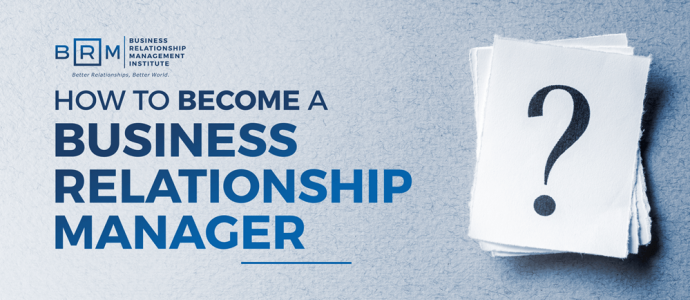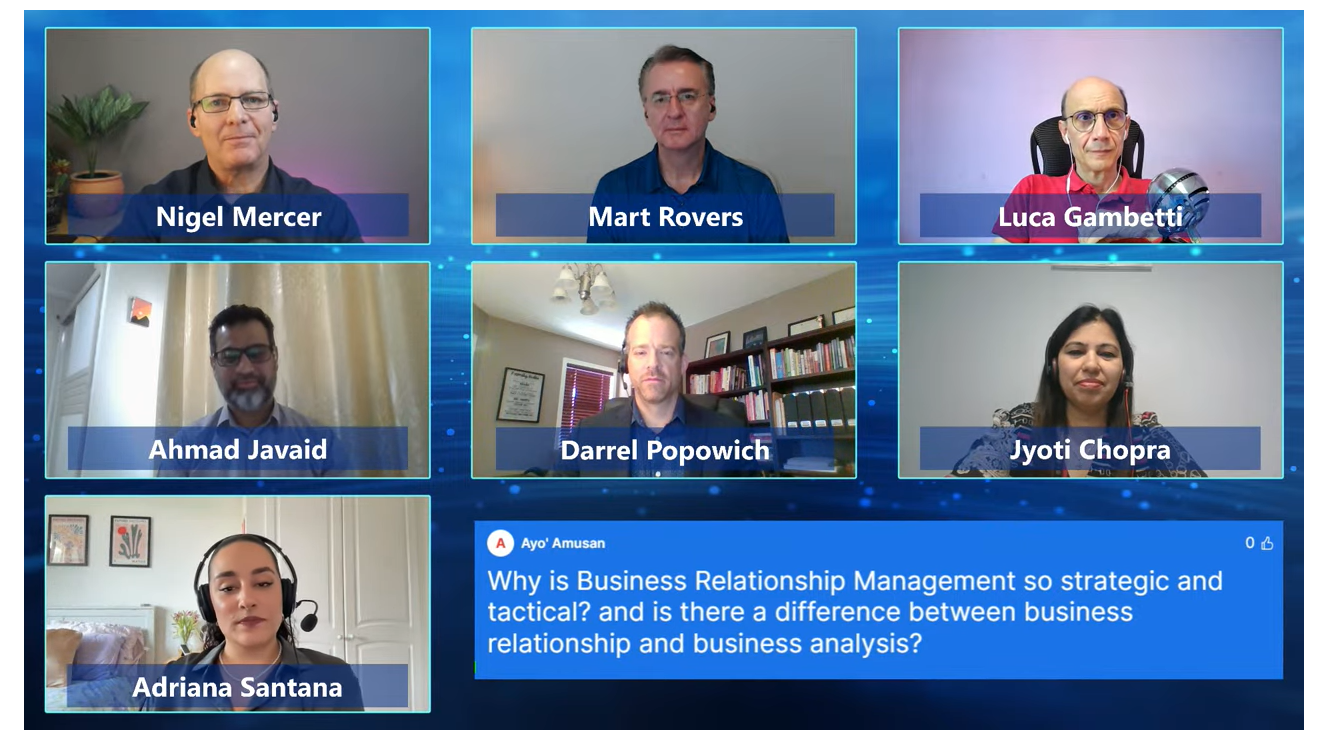How to Become a Business Relationship Manager

In case you missed you…. the recent APMG webinar, Level Up Your Career: How to Become a Business Relationship Manager, was a 60-minute interactive Q&A session where five BRM expert panelists answered the viewer submitted questions about becoming a BRM.
This panel of BRM experts, including the BRM Institute Chief Visionary Officer Darrel Popowich, took turns masterfully offering their expertise around BRM and what it means to thrive in your role and organization. Let’s get right into it and dive into a few of the questions and answers from this powerful session.
Click the questions below to view the answer.
What is the most effective “first step” for someone who is getting started in the field of business relationship management?
- Visit BRM Institute’s website: brminstitute.com.
- Access free information (articles, webinars, publications).
- Become a member of BRM Institute.
- Access the BRM Interactive Body of Knowledge (BRMiBOK) for full-in-depth articles about BRM discipline, role, techniques, and tools.
- Gain access to mentors, volunteer opportunities, and coaches to build your network.
- Find a mentor within your organization.
- Someone who manages relationships.
- Guides you and helps you navigate your role.
- Helps you understand what this role looks like in your organization.
- Connect with your why.
- Why become a BRM.
- Know your why so the how becomes easier.
- Identify stakeholders who are the business heads.
- Develop a demand landscape.
- Map it to internal [IT] capabilities.
- Understand your purpose.
- Enable the purpose of the organization.
- Connect relationships, activities, projects, and programs to driving the purpose of the organization.
- Deciding on what you and others around you focus on is the beginning of an effective Business Relationship Manager.
- Bottom line, educate yourself about BRM.
Why is BRM so strategic and tactical?
- To converge all to the organization’s common purpose.
- To break down fragmented and different siloes and solos within the organization.
- Provide value to your stakeholders and help with solutions.
- Relationships are everywhere—at a strategic level, a tactical level, and operational level.
- The healthier and more mature the relationships in the organization the better it will function as a whole.
- How could business relationship management and its strategy apply to value chains and markets in the development sector?
- Embedded BRM functions at all levels of the organization.
- BRM needs to know all the right functions and stakeholders to add the right information to simplify the value chain and pick the right markets at the right time.
- BRM should be intergraded in every part of the conversation so that decision makers and execution team know what the organization is really going after.
- Know what the organization demands and what the internal capabilities can deliver.
- BRM is the strength and the power of delivering business value.
What are the top three skills for a BRM role?
- Being a good connector.
- Great relationships and network.
- Nurture your relationships within/outside your organization, market, and industry.
- Understand and develop empathy.
- Considerate of other people’s perceptions.
- Our human connections.
- The emotions involved.
- Build a powerful narrative around the purpose and contribution of everyone to the final purpose.
- Connect relationships to results.
How easy would it be to study for my BRMP without interfering with my day job.
- Set aside the time, make the investment in your career.
- Choose classes that work with your schedule.
- There are lots of classes offered that may fit your schedule.
- Some classes are 4 hours in the morning for five days.
- Read the textbook at lunch/in the evening/any free time within the week you are taking the class.
- Don’t stop at the BRMP earn your CBRM.
- BRMP gives you the what and the
- CBRM gives you the how.
What is a good background to have as a BRM?
- Know the business inside and out to be of more value to the organization.
- Make the right connections within the organization.
- Have a business acumen.
- Know the needs of the stakeholders.
- Exercise the interpersonal skill set within the context of the organizational culture.
- Be curious to know the business and know the problems.
- Have the desire to solve problems through relationships.
Do I need to earn any certification to be a BRM?
- But it is highly recommended that you earn your BRMP and CBRM Certifications.
- Become BRMP and CBRM certified.
- Discipline and exhibit an effective level of BRM.
- Tools and techniques available through certification.
- Gain a deeper understanding of BRM.
- Certification confirms investment in your BRM future.
Have more questions about business relationship management?
Get your questions answered! For a complete in-depth experience and more Q&As, check out the full length webinar below. ⇓
